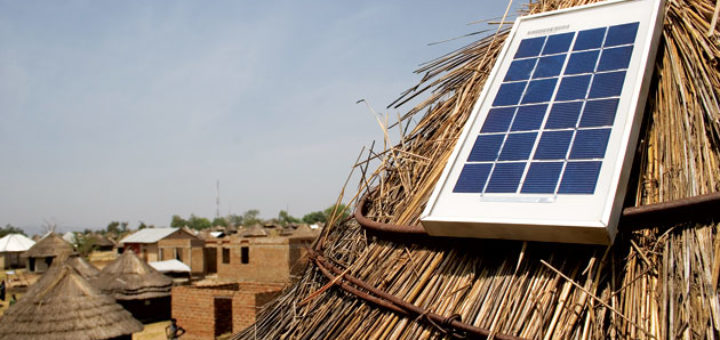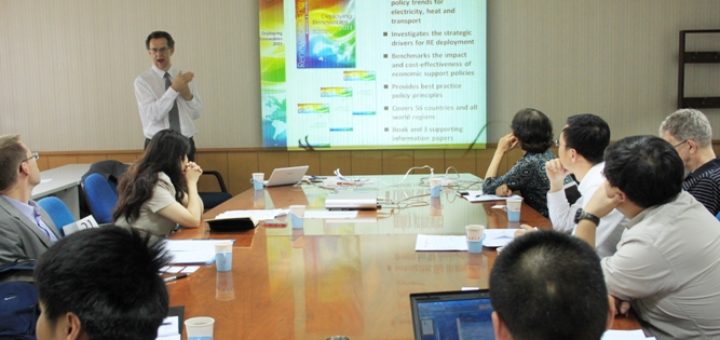The supply and use of reliable and affordable energy in Africa has multiple challenges and opportunities. Improving access to energy would improve people’s quality of life and boost local economies is a prerequisite for achieving many SDGs. Africa has huge potential for renewable energy deployment and stated ambitious plans through their NDC. TRANSrisk project have examined and investigated the potential and state a policy package is needed to realise the continent’s huge renewable potential.
All sectors / economy wide
Permafrost occupies 24% of the Northern Hemisphere’s land surface and is warming faster than the global average, thus melting permafrost: which has significant implications for efforts to control climate change. Quantities of organic carbon become available: permafrost contains twice as much carbon as in the atmosphere. The presence of permafrost carbon requires that the reduction of fossil fuel and industrial CO2 emissions needs to be greater and occur earlier.
New frameworks and tools are provided by TRANSrisk to manage climate change policy and are designed within the context of national case studies. Technological Innovation Systems (TIS) approach is used to explain the rate and nature of technological change in the case studies. The TRANSrisk project has two additional sectors alongside the four conventional circular economy sectors. A cross-sectoral approach is used to explore synergies and conflicts and risks and uncertainties of various innovative low
Arctic sea ice decline in recent decades is one of the most visible indicators of global warming. The sea-ice albedo feedback is an essential impact of sea ice melt, which amplifies Arctic temperature change. In this study, an optimal path for fossil fuel and industrial CO2 emission reduction is sought. Devoting more resources to mitigation implies a decrease in consumption and investment, implying a loss in net welfare.
If the earth’s temperature increase is limited to a maximum of 2°C premature deaths are likely to be reduced globally by 15% in 2050, from 4 million to 2.85 million. If an economic value is assigned to those premature deaths, the health co-benefit ‘savings’ are actually higher than the mitigation policy costs by a proportion ranging from 1.3 to 2, depending on the pathway. This is investigated in the Case of Santiago de Chile.
Innovation in mitigation technologies is seen as a critical contributor to achieving the ambitious GHG reduction goals of countries outlined in the Paris Agreement. The CARISMA project has analysed collaboration initiatives from governments, industries, and regions, each with different characteristics, to identify criteria for effective collaborations between the EU and emerging countries. The main finding of the analysis is that there is no unique pattern that could correspond to every good practice of collaborations.
The poorest people still struggle to have access to sanitation and clean energy. However, as incomes rise in developing countries, access to electricity, clean cooking energy, water, and sanitation, also improves but not as quickly as income growth. The United Nations Sustainable Development Goals (SDGs) aim to achieve universal access to clean energy, water, and sanitation by 2030. This study highlights the challenges of achieving SDGs, but also points to policy directions that could help.
Models are tools which help to assess the positive and negative impacts of a low-emission pathway for the country. Interview questions formed the basis for a series of model runs to obtain a better understanding of the implications of the energy efficiency pathway in Poland. The goal of the model run was to shed light on the macroeconomic impacts of investment in energy efficiency in Poland in the built environment.
Institutional, economic, and social contexts influence the formulation and implementation of climate policy instruments. Three categories of contextual factors that are especially relevant to climate change mitigation in EU policymaking: institutions and governance, innovation and investment and attitudes, behaviour, and lifestyle. Different factors or conditions may facilitate or hinder effective policy implementation as so much depends on the institutional, economic, and social contexts. In addition, not only international pressures but also local barriers.
The Paris Agreement requires the world to keep climate change below 2°C above pre-industrial levels, with an aim to stay below 1.5°C. The 1.5° target is particularly demanding and would require both major and rapid change in energy demand and consumption. A key element is to analyze Green House Gas Emissions of consumer-based options in the EU, such as food, buildings and transportation. The Carbon-Cap project explores the effects of applying different policy options.









